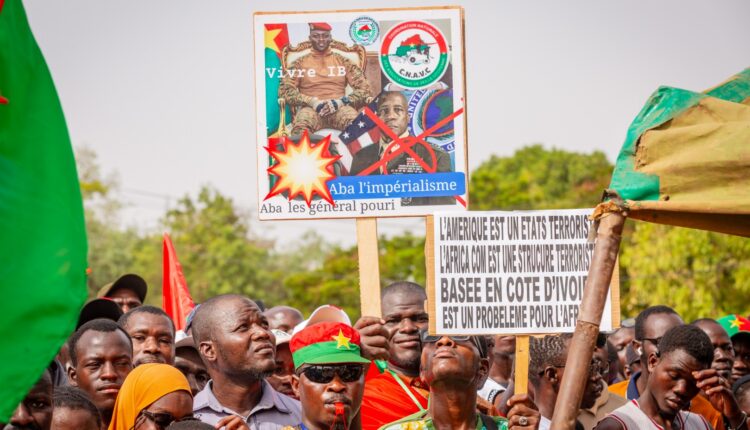Disinformation Drives Support for Burkina Faso Junta Leader in Nigeria
In Lagos, Nigeria, local auto mechanic Kehinde Sanni praises Burkina Faso’s military ruler, Captain Ibrahim Traore, as a model leader—even though he has never visited the country.
“Nigeria needs someone like Ibrahim Traore. He’s doing well for his country,” Sanni says, his opinion shaped largely by viral social media posts and videos portraying Traore as a bold reformer challenging Western influence.
But many of those posts are misleading or outright false.
Traore seized power in Burkina Faso via a military coup in September 2022 and has since allied with Mali and Niger to form the Alliance of Sahel States—an anti-Western bloc increasingly aligned with Russia. Their foreign ministers recently held founding talks in Moscow.
While critics condemn Traore’s crackdown on dissent and press freedom, Nigerian fans on social media paint him as a visionary. Actress and politician Hilda Dokubo described him online as proof that “a country takes the shape of its leadership.”
Analysts say this wave of adulation, often fed by coordinated disinformation campaigns, poses a threat to Nigeria’s democratic values.
“This growing admiration for Traore in Nigeria normalises military rule and invites foreign ideological interference,” warns Malik Samuel of Good Governance Africa.
As Nigeria struggles with soaring inflation and economic reforms under President Bola Tinubu, some Nigerians see Traore—young, defiant, and open to Russia—as a symbol of resistance and hope.
But AFP fact-checks have debunked several claims tied to his alleged successes. For instance, a viral video showing a towering housing project attributed to Traore’s government actually depicts a site in Algeria. Another claim about him lowering cement prices in Burkina Faso is also false.
Experts say these narratives follow a familiar pattern. “This is the Russian playbook,” explains journalist Philip Obaji, noting that propaganda units produce content distributed by influencers to sway African public opinion in favour of military regimes and Moscow.
On the ground, however, the reality in Burkina Faso is grim. The country remains mired in jihadist violence and ranked as the world’s most terrorism-affected nation in the 2025 Global Terrorism Index. Civil liberties have also sharply declined, with journalists silenced, arrested, or forced into exile.
Burkinabe financial analyst Maixent Some, who criticized Traore’s governance, was declared wanted by the junta in April after highlighting human rights abuses.
Despite the state of Burkina Faso, Russian flags now appear at protests across West Africa. In Nigeria, authorities arrested nearly 100 demonstrators waving Russian flags during an anti-poverty protest last August.
Analysts warn that glorifying military rulers through disinformation risks undermining democratic systems already strained by economic hardship and insecurity.



[…] man claimed he acted in self-defence when the 150kg female bear, known as Caramelles, attacked him after her cubs appeared near the hunting party. He described being dragged and bitten before […]